Inventory Table:
Inventory History Table:
The query:
INSERT INTO inventory_history (SKU, Quantity, timestamp)
SELECT SKU, Quantity, modifiedtime FROM inventory WHERE modifiedtime BETWEEN '2016-12-25 00:00:00' AND '2016-12-26 00:00:00';
The Trigger:
CREATE TRIGGER `sold_diff` BEFORE INSERT ON `inventory_history`
FOR EACH ROW begin
declare prev_quantity int(11) default 0;
declare prev_sku varchar(255) default null;
select sku
into prev_sku
from inventory_history
where prev_sku = NEW.sku
order by id desc
limit 1;
select quantity
into prev_quantity
from inventory_history
order by id desc
limit 1;
set NEW.sold = prev_quantity
;
end
The Result:
Now, how it's set-up is it's taking prev_quantity from the previous row, and putting it into the sold column.
I can not figure out a way to bind SKU in with prev_quantity, so that it will give me the previous Quantity value from the corresponding SKU.
Desired Result:
I've messed with a variety of different WHERE clauses on the two declared, but nothing is working right.. so I'm thinking this is not the right path to take.
How can this be achieved?



